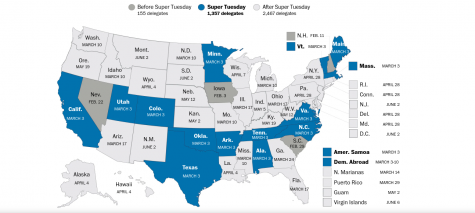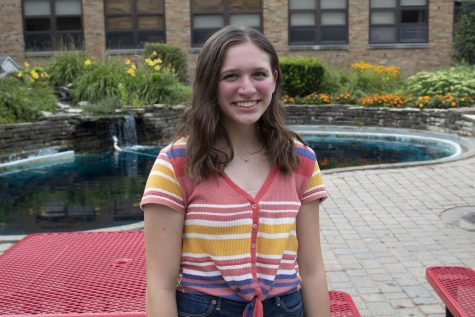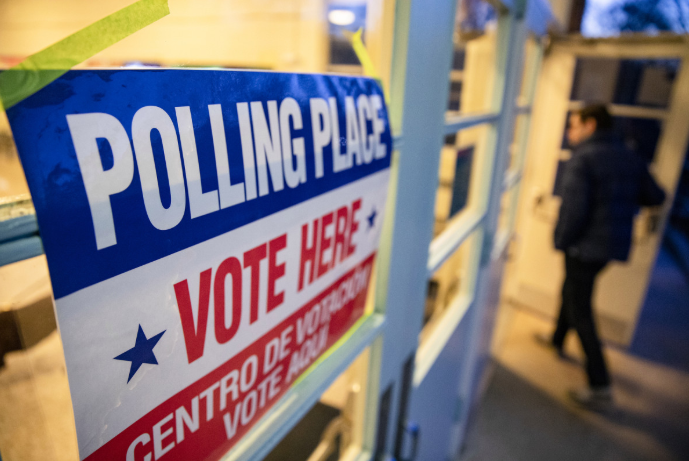Super Tuesday spins off the presidential election
Courtesy of the New York Times
On Tuesday, March 3, Super Tuesday spins off the primary elections for the 2020 election with 14 states and one U.S. territory holding their primaries for the Democratic presidential nomination.
On Tuesday, March 3, Super Tuesday spun off the primary elections for the 2020 election with 14 states and one U.S. territory holding their primaries for the Democratic presidential nomination. Candidate Joe Biden proved that he was more of a regional candidate compared to candidate Bernie Sanders than was previously expected. Overall, he won nine out of the 15 primary contests at stake, and unexpectedly brought in votes from Minnesota, Massachusetts and Texas. Candidate Tulsi Gabbard won over two delegates in the election so far.
With recent dropouts of candidates Elizabeth Warren, Michael Bloomberg, Pete Buttigieg and Amy Klobuchar, the primary election has dwindled down to a race between Biden and Sanders. Super Tuesday has been identified by many as a resurgence in Biden’s political campaign.
“Obviously Republicans already have their candidate chosen, but with the Democratic Party I think you saw a lot of people consider Joe Biden’s campaign to be over based on his debate performance up until that point,” said Mr. Joseph Battaglia, history and economics teacher. “However, Biden had a really strong showing on Super Tuesday.”
Biden’s campaign took only three days to have a complete turnaround. Despite his lack of advertising, funding, and campaigning in almost half the states he won, his moderate Democratic approach resonated with voters.
“Many thought that Warren and Bloomberg supporters were set to support Bernie,” said Justin Tatooles, junior. “But Buttigieg, Klobuchar and Bloomberg supporters are actually supporting Biden’s campaign.”
In efforts to defeat President Donald Trump, Bloomberg is uniting behind candidate Joe Biden after an end to his costly campaign to which he spent almost $500 million.

The primary elections spin off as 1,357 delegates voted on Super Tuesday.
“Biden is most likely going to have Michael Bloomberg supporters and all his facilities, so I think he would be the best in place to beat Donald Trump,” said Sydney Thayer, senior.
The states with primaries on Super Tuesday were representatives of America’s more diverse states including Nevada and California.
“It’s interesting to look at where are the demographics for the democratic party actually voting, and what this means is that predominantly black voters, Latino and Latina voters especially in the south like Texas and New Mexico are showing that they’re actually moving over to the Biden campaign where Sanders thought he could win these voter groups,” Tatooles said.
With a current voting count of 636 delegates supporting Biden and 538 delegates supporting Sanders, the delegate results in California will be a major turning point in the primary election as it continues into April and May. California alone constitutes 30 percent of the total 3979 delegates and is projected to draw in votes in favor of Sanders.
“I am personally really happy about the outcome of Super Tuesday,” Thayer said. “I’m really happy Joe Biden did well because I think he would be a strong point for the nomination. I think Bernie will slowly get weeded out as the democratic establishment continues to back Biden.”
Although most freshmen, sophomores and juniors are not eligible to vote, many stay informed with the day to day changes during the election.
“I am so excited to vote next year because I will be able to share my political views and make an impact on my country,” said Alexi Kendle, junior. “From what I’ve seen on Twitter, it sounds like Bernie is not going to win.”
To follow the updates of the election, you can visit the live 2020 presidential primary election results. Illinois hosts its primary election on Tuesday, March 17.

Natalia Berti is a senior who, when not chilling at a picturesque coffee shop or practicing her badminton footwork, enjoys re-watching the Avengers movies...












